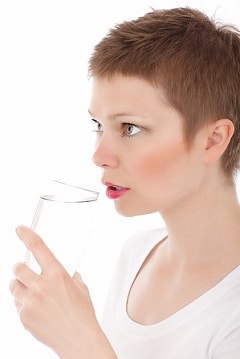 When the body does not get sufficient water, it becomes dehydrated and this affects one’s health, as every single cell in the body is dependent on water to grow and to function.
When the body does not get sufficient water, it becomes dehydrated and this affects one’s health, as every single cell in the body is dependent on water to grow and to function.
According to Dr. Fereydoon Batmanghelidj’s extensive clinical and scientific research, the body naturally produces different thirst signals, but these are misconstrued much of the time. According to the Dr, if we learn to correctly read these signals, we will be able to both avoid and cure many of the illnesses which he says are actually dehydration and not really illnesses at all.
Dr. Batmanghelidj says that once we know how to interpret the signals, we will enjoy better health and not have to depend on the health care and pharmaceutical industries that, according to him, are only in it for the money. There will be a paradigm shift in medicine and a science-based transformation of the health care system.
According to Dr. Batmanghelidj, the following conditions are not ill-health that need to be treated with medication, but are signs and symptoms of thirst and dehydration.
Indigestion
Indigestion, also known as dyspepsia, is a disorder of digestive function characterised by discomfort, heartburn or nausea. It is a common problem that affects many people, and normally a change in diet is recommended and a number of different medications such as antacids may be used to treat it. If it continues, further investigations such as an endoscopy may be done, and a doctor may prescribe proton pump inhibitors, H2-receptor antagonists, or prokinetics as treatment.
According to Dr. Batmanghelidj, indigestion is just one of the body’s signs of thirst. Drinking insufficient water means that the stomach does not get sufficient water to break down the food that we have eaten, thus causing the uncomfortable full feeling and the pain that we experience. The lack of water in the stomach and digestive canal also depicts a lack of mucosa, the innermost layer of the structure of the stomach, which consists of 98% water, causing the stomach acid to create heartburn and indigestion.
Ulcers
According to the medical fraternity, ulcers are the result of infection; according to Dr. Batmanghelidj’s research, ulcers are caused by bacteria that naturally dwell in the intestines taking advantage of an immune system that has been suppressed as a direct outcome of dehydration.
He says that if we drink water as often as we should and ensure that we remain hydrated, the strongly acidic content of the stomach will not be able to leach into the intestine.
Colitis
Colitis is an inflammatory bowel disease, generally associated with diarrhoea, abdominal pain, bloating, and often blood in the stool. The cause is often thought to be due to eating contaminated food,poor sanitation, drinking infected water or bad personal hygiene and is normally treated with antibiotics. There are various kinds of colitis, such as ulcerative colitis, allergic colitis, ischemic colitis, Infectious colitis, and microscopic colitis.
Dr. Batmanghelidj’s view is that colitis pain should initially be viewed as another thirst signal. Not drinking enough water causes dehydration which makes the passing of residue difficult, causing constipation. Drinking water often to ensure complete hydration will ensure that this does not happen.
Motilin is a gastrointestinal hormone or neurotransmitter that produces rhythmic contractions of the intestines, smooth muscle contractions called peristalsis, which moves food along. When we drink water as often as we should and are fully hydrated, there is adequate water in the body for all the digestive processes that are contingent upon on the availability of water.
Thus, Batmanghelidj contends, when we drink enough water we will not present with any of the above symptoms, and will save plenty on paying for doctors and medications that we do not need; all we need is to drink water.
The best times to drink water in order to ensure that we are always fully hydrated and do not suffer from any health problems is one glass of water first thing in the morning; one glass of water half hour before eating breakfast, lunch, and dinner; one glass approximately 2.5 hours after each meal, and a glass of water last thing at night.
Source:
Get a water cooler, bottled water cooler or mains water dispenser from Living-Water in London. Get water cooler accessories and natural spring water for you premises.





